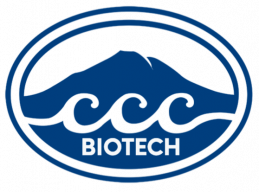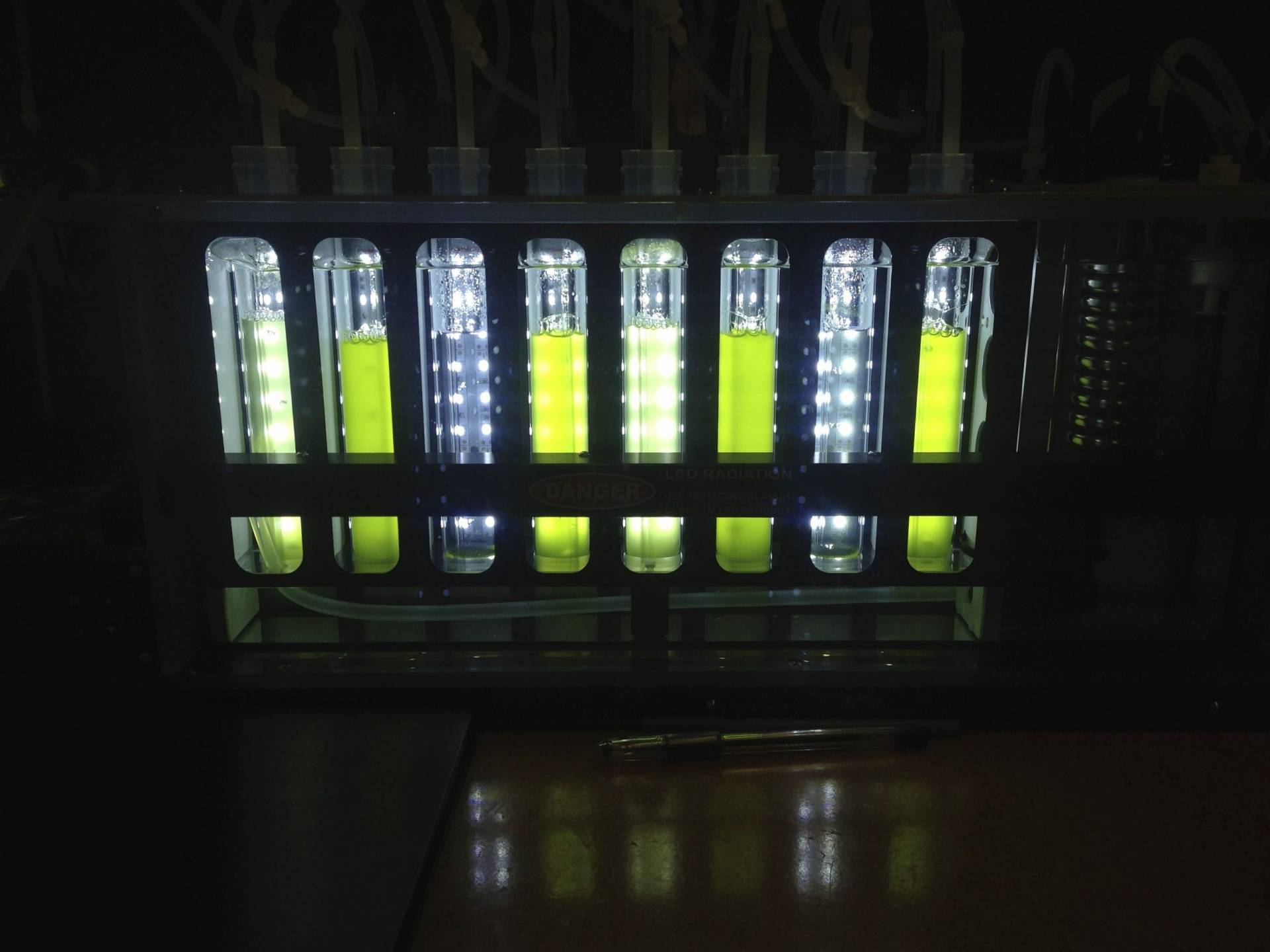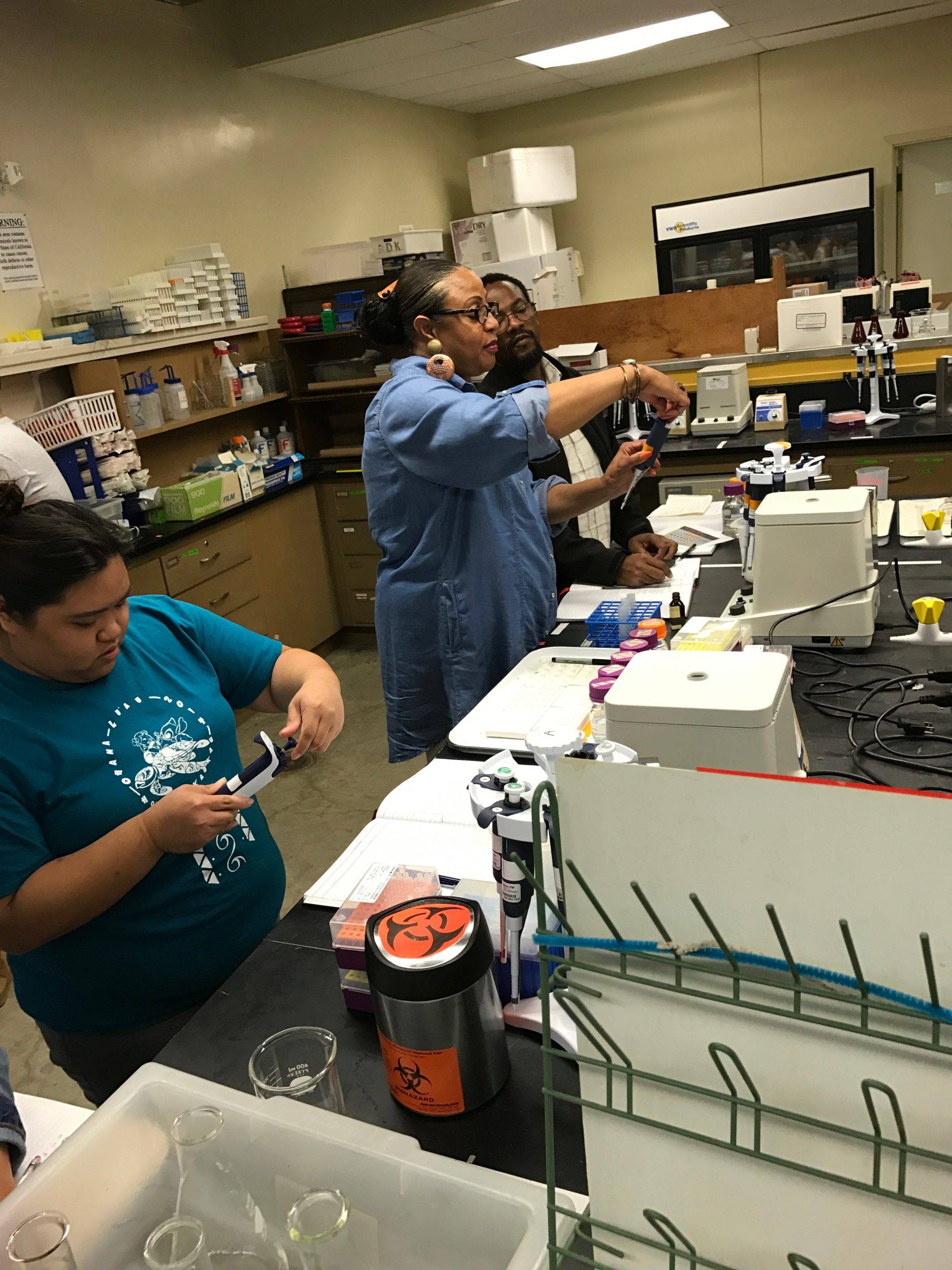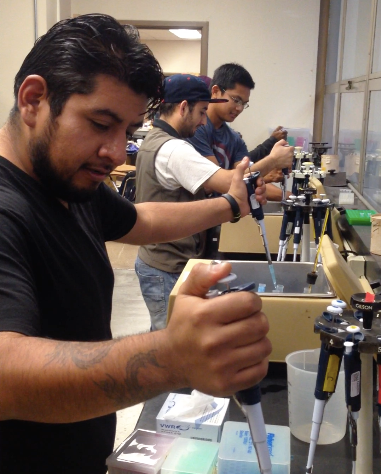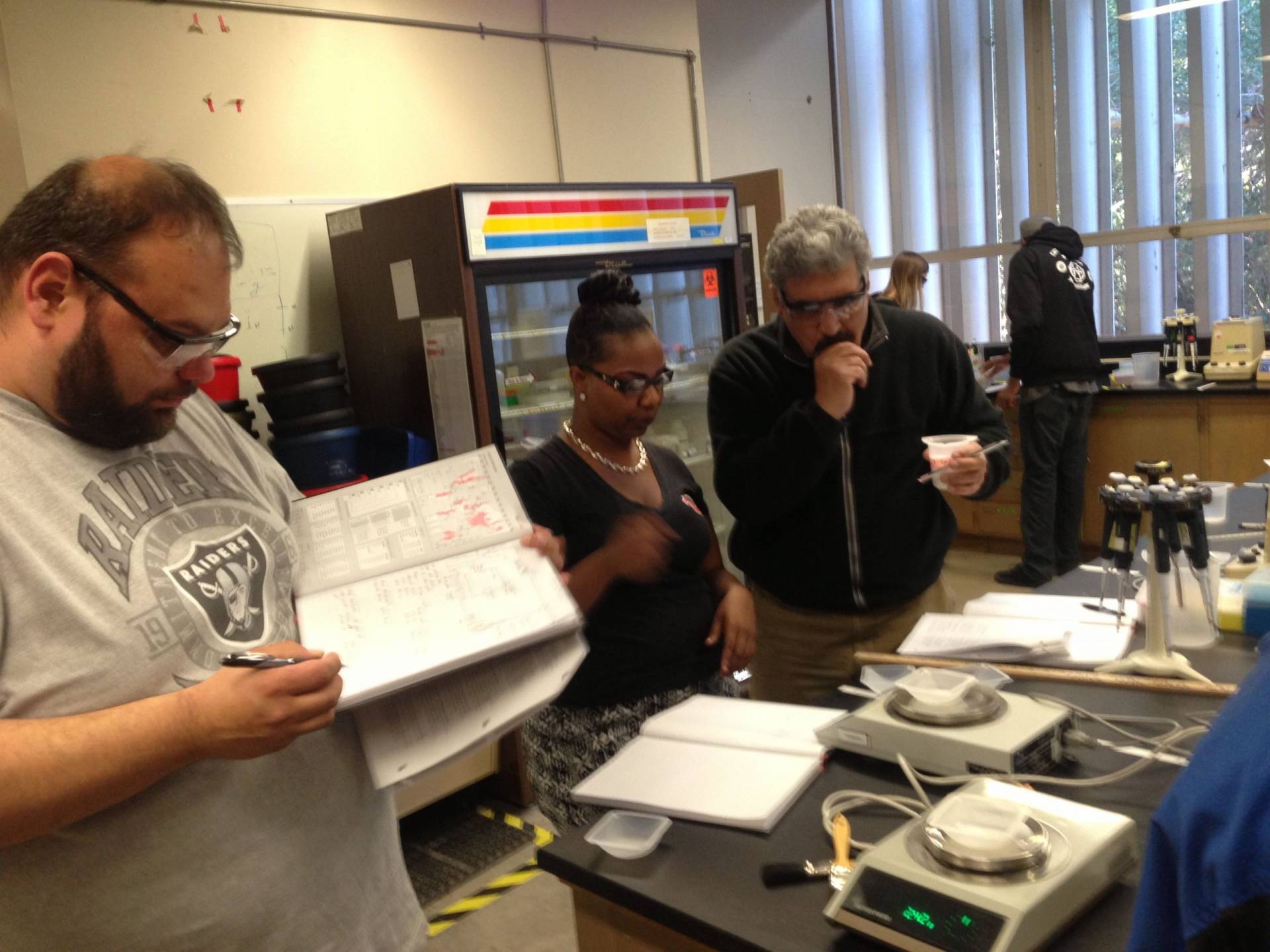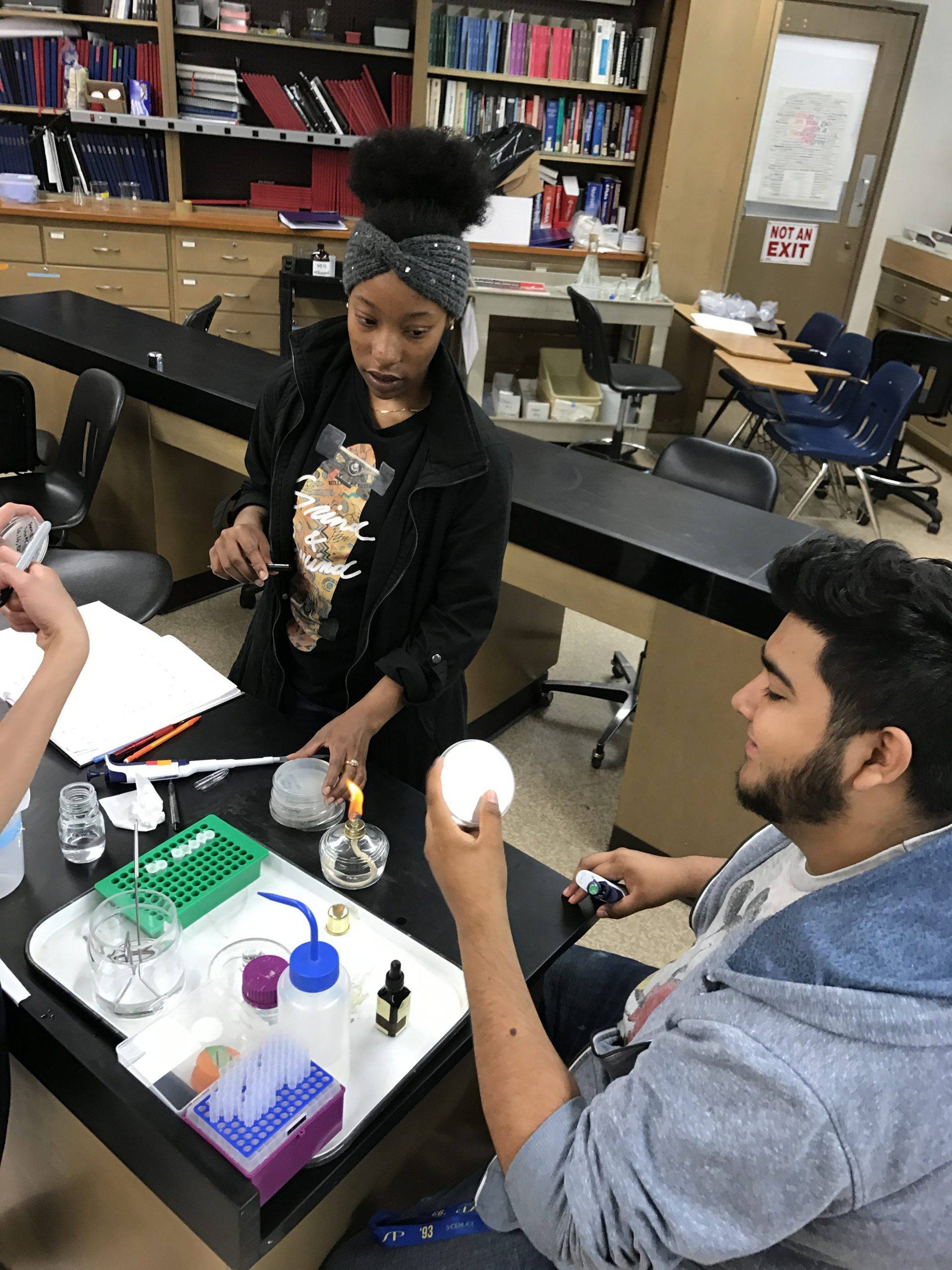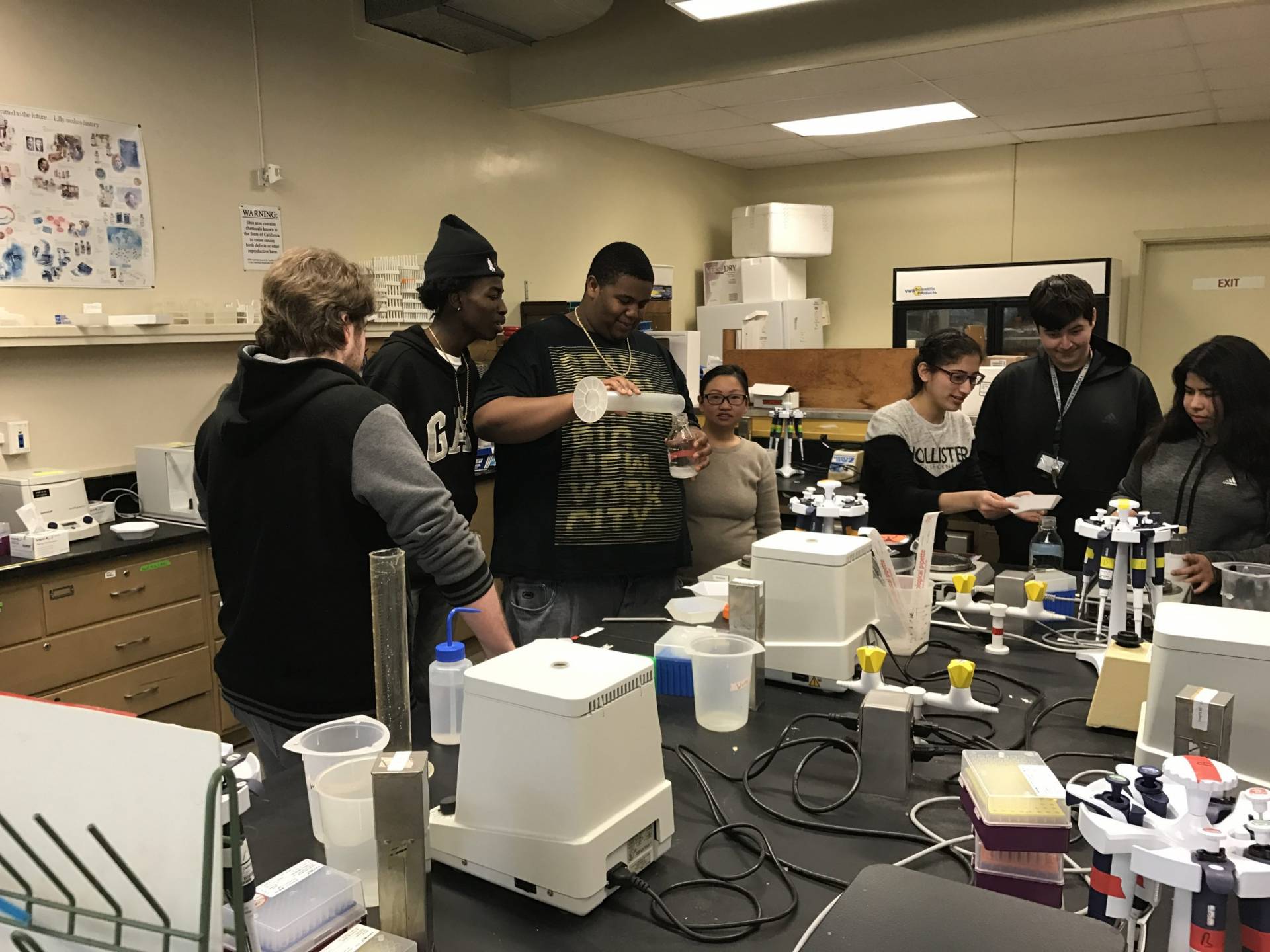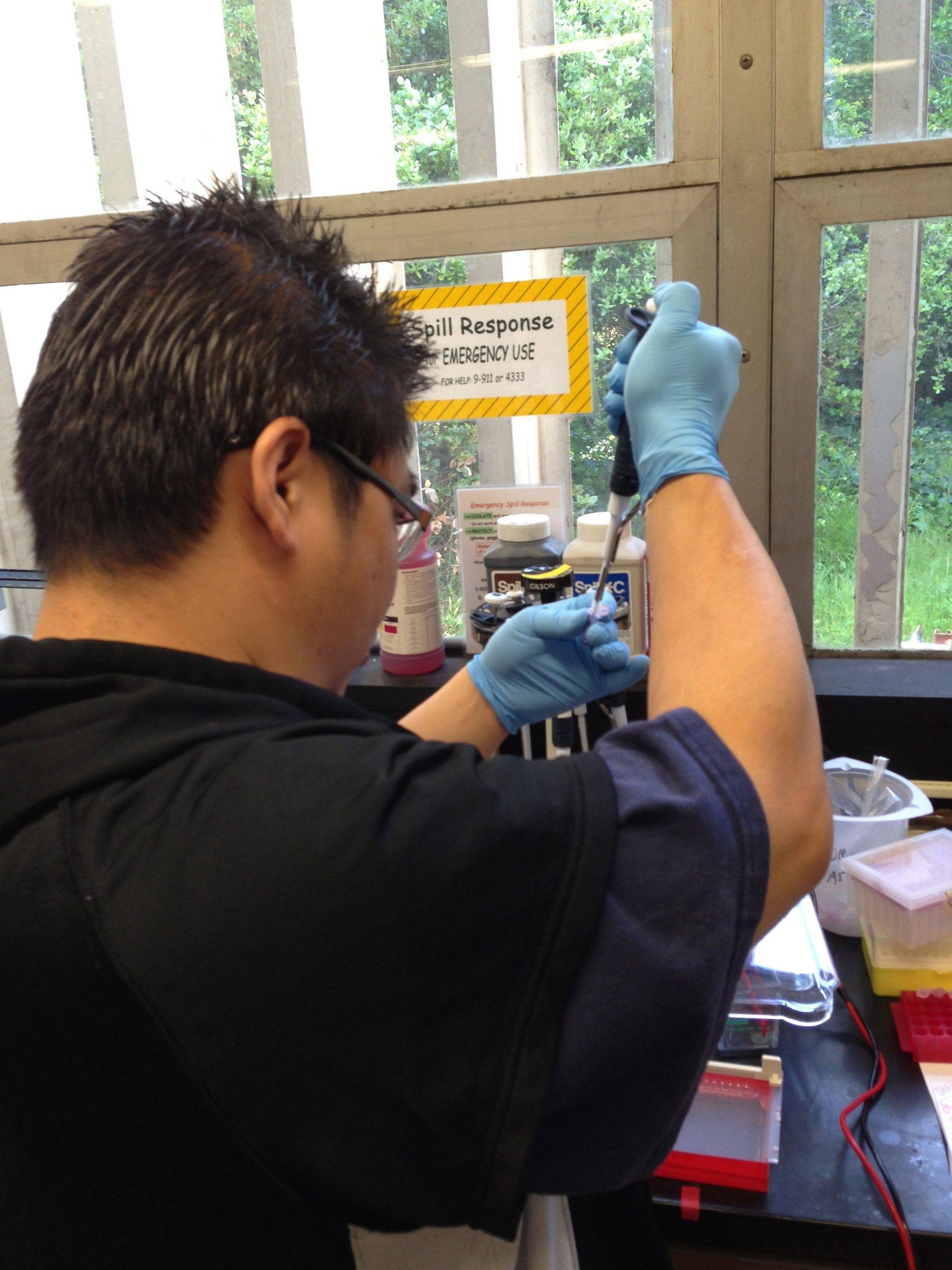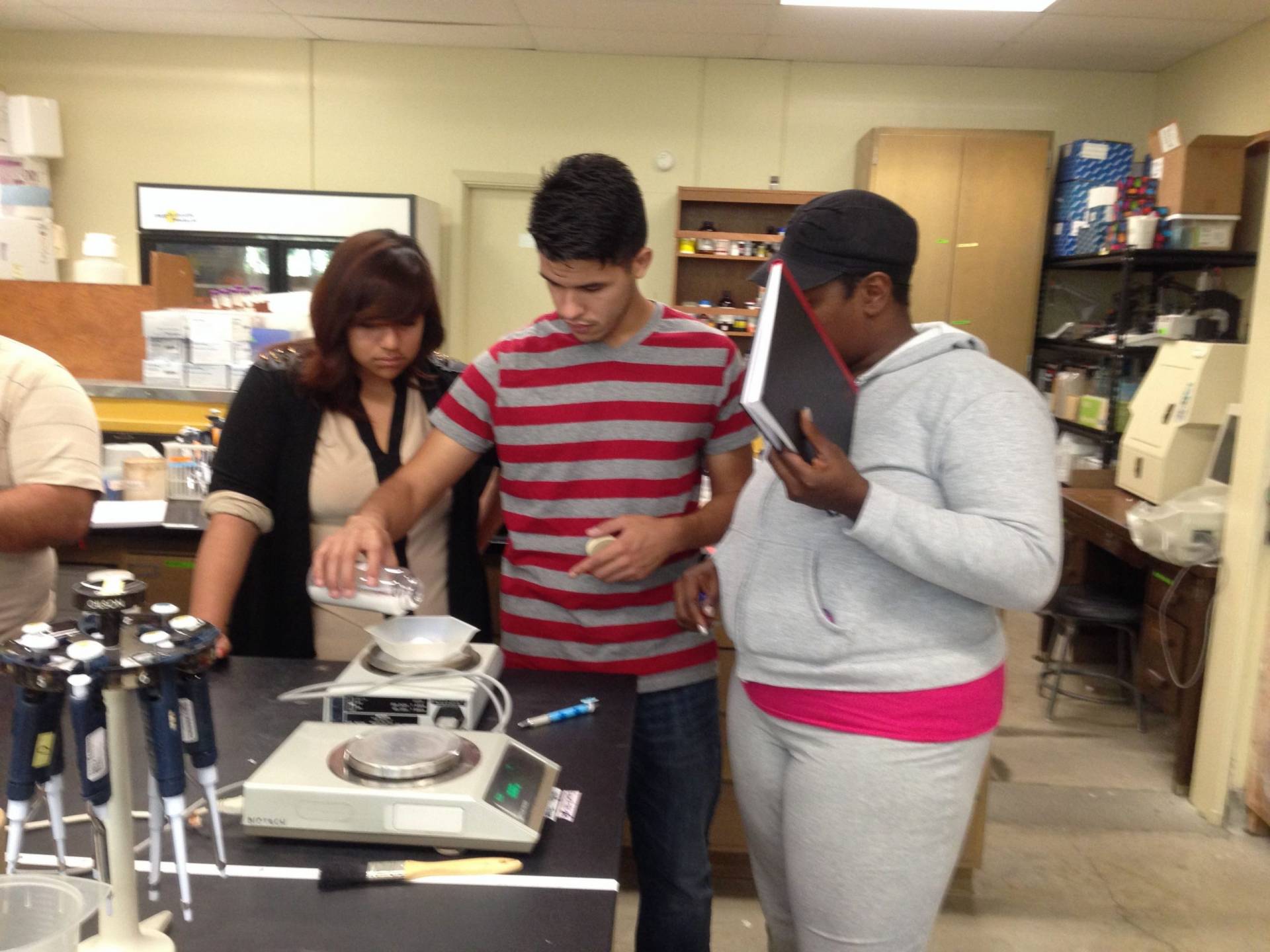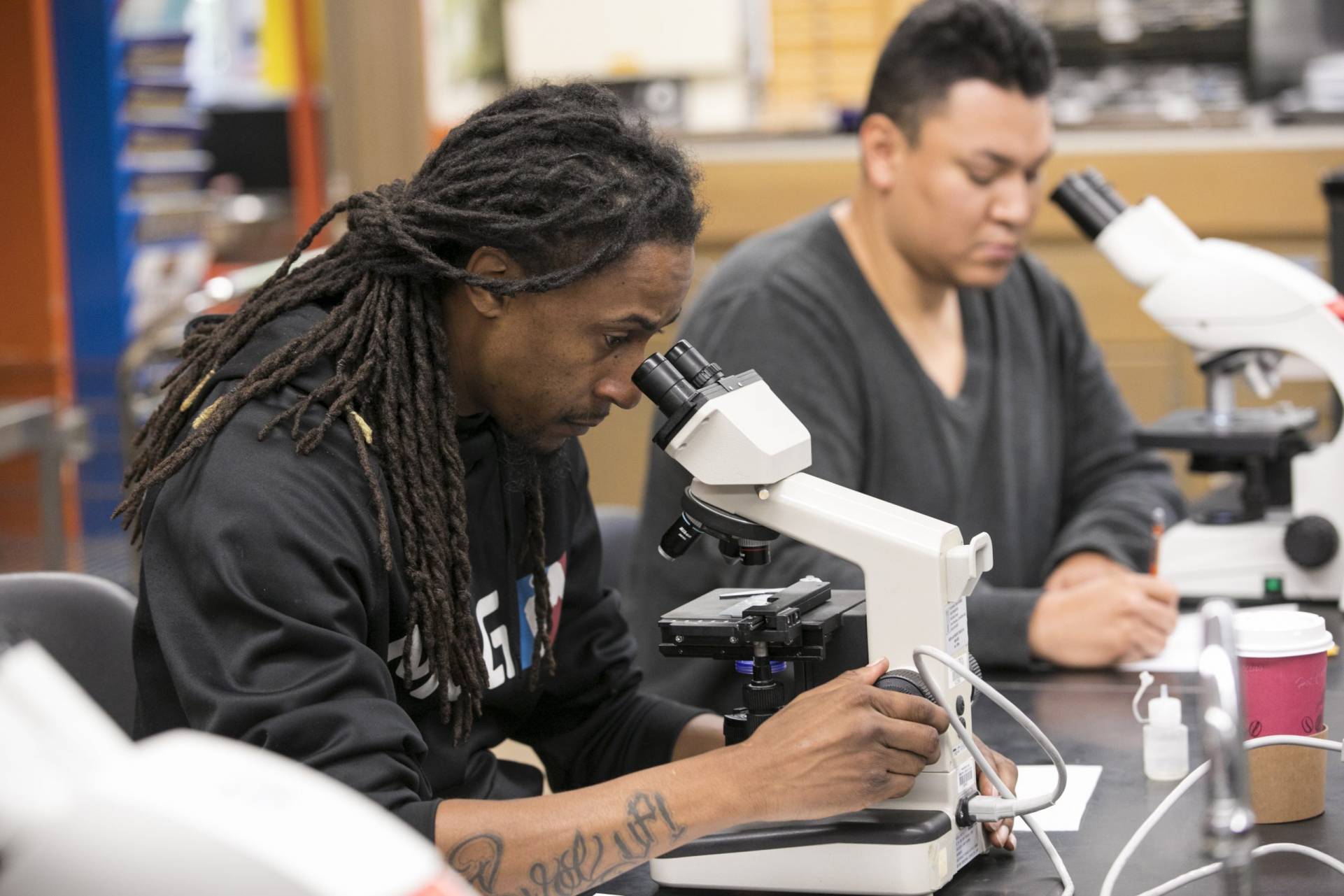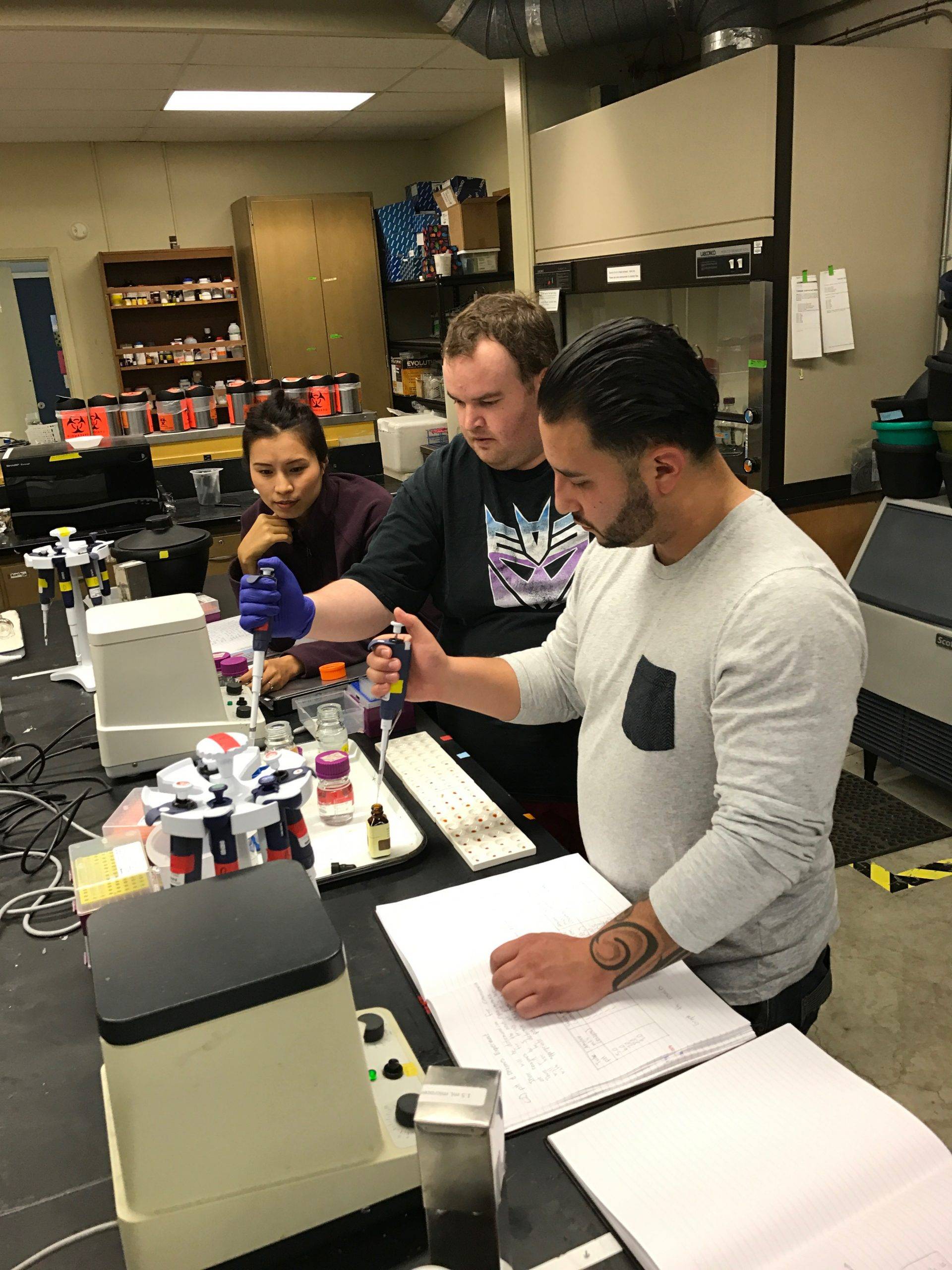BIOSC172L: This is an introductory laboratory course in which scientific and biotechnology methodology is taught and used to explore and experiment with topics found in the Introduction to Biotechnology course (BIOSC 172). It is a brief introduction to the skills and concepts necessary to work in the biotechnology industry, allied health, or related fields. Students practice using lab techniques, calculations, genetics and equipment, to carry out experiments that measure growth, metabolism, and biomolecule production. Content is appropriate for a wide range of students and professionals. Topics include: the biology, business, and legal/ethical issues surrounding biotechnology; cells, genes, DNA, proteins, genetic engineering, drug development, biofuels, agriculture, bioremediation, biotechnology company structure, and the regulations affecting the field, and a survey of general methodologies utilized in biotechnology research and manufacturing. Basic biology concepts are applied directly to a scientific investigation of how best to produce biofuels using algae.
Skills in
- Lab notebook
- Basic laboratory calcuations
- Use laboratory equipment (micropipette, balance, spectrophotometer, microscope, etc)
- Experimental design
- Photobioreactor
- Microscopy
- Spectrophotomter
- pH meter
- graduated cyllinder
- analytic and tabletop balance
- centrifuge and microcentrifuge
Knowledge of
- Cells, Genes, DNA and Proteins
- Creation and use of Standard curves
- Process of scientific analysis
- genetics and Genetic engineering
- Lab safety
- pH, bases, acids, buffers
- enzyme function and use
- chemistry of laboratory solutions
Ability to
- Data presentation and analysis
- Prepare cellular extracts
- monitor growth in a bioreactor
- Prepare and use a standard curve
- Use the metric system
- Work as part of a productive scientific team
What types of jobs does it prepare for?
- Laboratory assistant
- Media prep assistant
- Manufacturing Technician
- Production Technician
- Laboratory support worker
Core Competencies
- Maintain laboratory notebook and associated documentation
- Items identified appropriately and trackable
- Identify hazards and work safely
- Teamwork and conflict management
- Perform calculations related to reagents, solutions and media formulations
- Unit measures/conversions
- Be able to convert between metric units
- Ratios and proportions
- Multiple solutes
- Dilutions
- Serial Dilutions
- Graphing
- Prepare and analyze graphs
- Use of the scientific method to test and modify ideas about our understanding of molecular biology concepts
- Proper use of Notebooks
- Micropipetting (near perfect use), balances, volumes, etc. Clients depend on strong technique!!
- Metrology (pH, balance, volumes, micropipetting, spectrophotometry)
- Demonstrate ability to use measurement instrumentation properly
- UV spectrophotometry
- Concentration assay with standard curve
- Basic microscopy
- Apply principals of basic chemistry of buffers and pH to biological molecules
- Be able to perform basic dilutions
- Biological Solutions, including media preparation, autoclaving, pH determination and adjustment
- Demonstrate Good Laboratory Practices and record keeping in a laboratory notebook
- Enzyme activity assay
- Experimental design of growth conditions and metabolic measurements
- Count cells, perform calculations, and analyze data related to cell growth and survival
